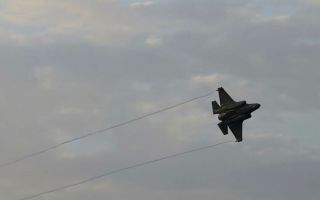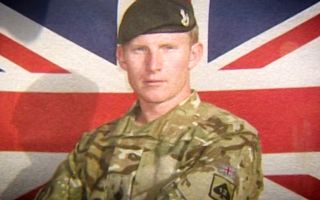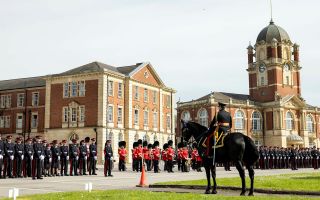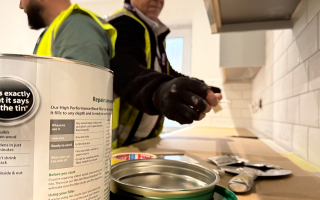Tri-Service
A Murky Milestone: 100 Years Of Chemical Warfare
Foaming at the mouth, berserk and blinded, French soldiers suffering from the crippling effects of mustard gas fled in all directions. Gasping for oxygen through fastening airways but finding poison instead, the chlorine flowed through the body and ate away at the eyes, throat and lungs.
"It was a new element in warfare. Indiscriminate," said Piet Chielens, curator at the In Flanders' Fields Museum in nearby Ypres. And what's more, he said, "you create psychological terror."
Some 1,200 French soldiers were killed in the chaos of that first 5-minute gas attack and the German front line that followed the cloud as it inched its way across the trenches.
“You drown in your own lungs,” Chielens said.
A poison gas attack using gas cylinders in World War I
The introduction of chemical warfare during the First World War was a major event in the history of military technology.
It not only posed an unusual challenge to military thinking of the day, which was largely conventional and wholly unfamiliar with science; it also created a heated moral debate surrounding the new weapon that did not discriminate between soldiers and civilians.
French children with gas masks at Marbache in 1918
The morality of chemical warfare filters through to today, with allegations levelled at the Syrian government and even IS, raising questions of the potential for chemical terrorism.
This grim anniversary is being used by UN Secretary General Ban-Ki Moon as a reminder for the world to rid itself of these indiscriminate arms “once and for all”.










